Project tells railway stories from all communities
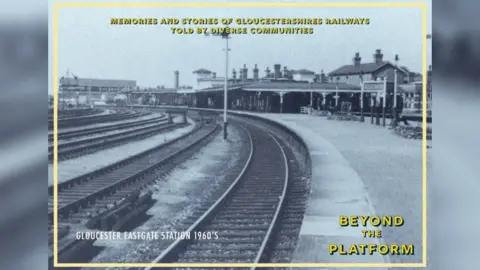 Gloucestershire Archives
Gloucestershire ArchivesCommunity members involved in a project to shine a light on underrepresented voices in the history of the UK's rail industry said it is "vital" their stories are heard.
An exhibition exploring how railways have connected places and shaped lives, careers, and neighbourhoods can be seen at Gloucestershire station and Gloucestershire Archives.
Different communities are reflected, with particular attention on members from the South Asian and Caribbean communities, featuring their stories of working on and living near the railway that were previously unheard.
It is part of Beyond the Platform, a series marking the 200th anniversary of the national railway.
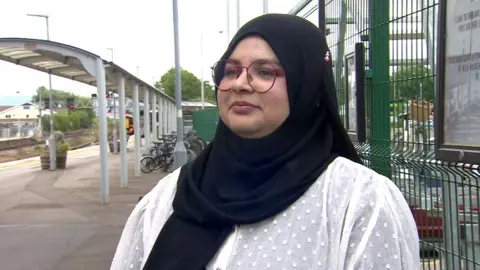
Gloucestershire Community Rail Partnership (GCRP) worked alongside a local artist, Gloucestershire Archives, University of Gloucestershire, and other organisations to create the work.
Faatimah Bham, manager for GCRP, said this project was all about including the stories of people who have been missed out of history.
"There's not much of a focus on the diverse communities who contributed to the railway so we decided to focus on the south Asian and Caribbean communities," she said.
"When people see themselves represented in places like railways it helps young people see opportunities and it diversifies the railway as a whole."
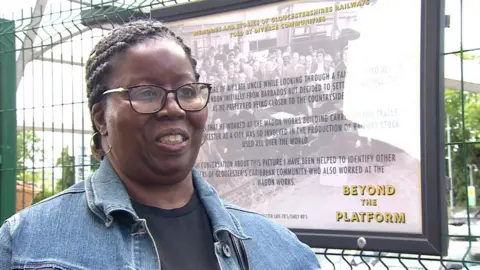
Hazel Golden, the chairperson of Ebony Community Carers, suggested showing photographs to members of the Caribbean community to spark memories, which really helped.
"As children we used to run along the tracks so the pictures jogged people's memories and we found people who worked on the railways or lived on the railways.
"When I saw one of the pictures, I saw my brother-in-law, who worked in the wagon works" she said.
She said members of the Caribbean community are part of everyday life, "but sometimes we seem to be an add on".
"It's important to recognise everyone that lived in the community worked on the railways… they did their bit," she added.
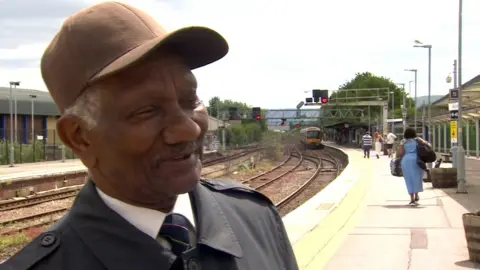
Carlton Green said when he came to Gloucestershire, the railway was "a vital part in our working days because we travelled from Gloucester to Dursley where I got my first job".
"My wife's father, Mr Bailey, worked on the railway, there was a lot of them that used to work there and the stories they told were mixed.
"If they had to work on the lines at night during the winter, it was uncomfortable, but for the chaps on guard duty it was different because they were in office," he said.
He said as such a close community, it is vital to tell the West Indian community's stories.
"The youngsters are coming along but a lot of history is passing them [so] if we try and reach out a little bit more, maybe things can be different," he added.
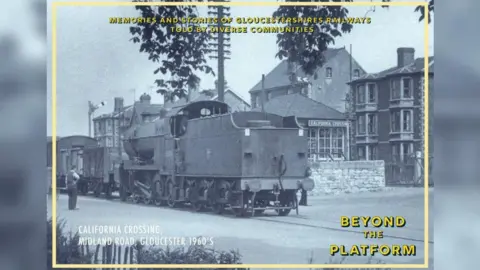 Gloucestershire Archives
Gloucestershire ArchivesFollow BBC Gloucestershire on Facebook, X and Instagram. Send your story ideas to us on email or via WhatsApp on 0800 313 4630.
